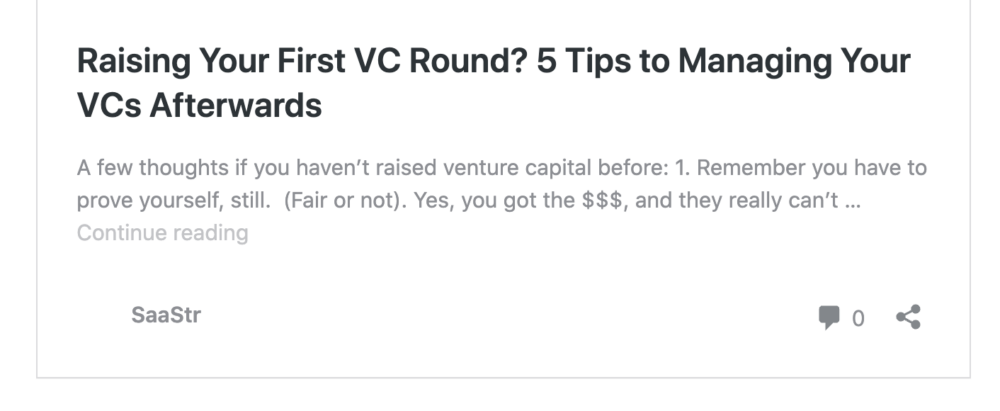Dear SaaStr: How Many Hours Per Week Do VCs Expect Founders to Work?
Most investors don’t care how many hours you work, per se … all they care about is that you get it done. Grow the company, hit the plan, etc. How you get it done — that’s your job. It’s up to you. None of my VCs ever asked me how many hours I worked. They asked about the plan, the numbers, the team, and the future. And I’ve never asked any of the 30+ founders I’ve invested in.
Having said that, investing millions of dollars is a big people risk. Especially if you didn’t know the founders before the fundraising.
As a VC maybe I get 3 weeks to get to know you before a term sheet. Sometimes, less. Then give you $1m-$2m-$4m dollars — where is the time to build trust? There isn’t any. Not really.
So what is important is not the hours worked, but the signals that you are doing everything possible to win. So VCs look for:
- Email responsiveness. Most great CEOs respond to key emails with shocking alacrity. If you aren’t responsive to early-stage VCs, that can create huge anxiety. Don’t wait a week or whatever to respond, even if you have other stuff that seems more important to do.
- Ethical lapses. You’d be surprised how many founders treat the company’s money as their own. They “borrow” funds, take nutty vacations on the company’s dime, etc. Not most, of course. But to be clear — more often than you’d think.
- Listening. I know VCs sometimes give you terrible advice. But if you don’t at least listen, it creates anxiety that there is no trust.
- Team drama. Is the team getting along? If they are working long hours together, at least that’s a sign they are working well together. The quickest path to Death in a start-up is a very smart but dysfunctional founding team.
- A slowdown in investor updates or other scheduled communications. When founders are slow to schedule board meetings, when the monthly investor udpates stop coming on time … that’s a flag for every investor.
I guess my point is when VCs at least see that you are thinking about your start-up 24×7 … no matter how often you actually code/sell/market in terms of hours worked … that is incredibly reassuring.
And when it seems like you aren’t around, or doing something that isn’t 100% focused on the start-up … it creates huge anxiety.
Because really there was no chance to build trust, in most cases, before the million+ check went into the start-up bank account.
A related post here:


